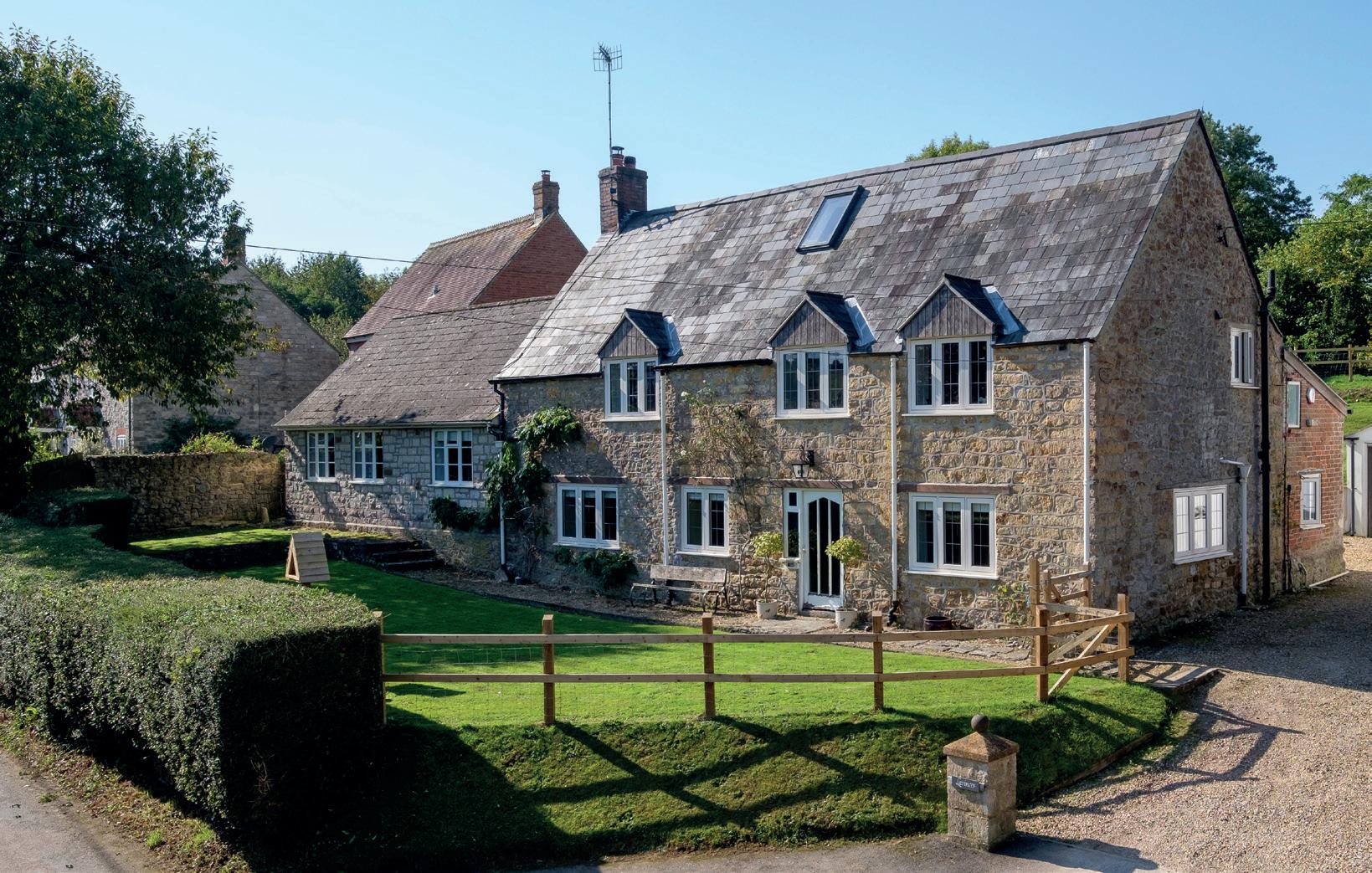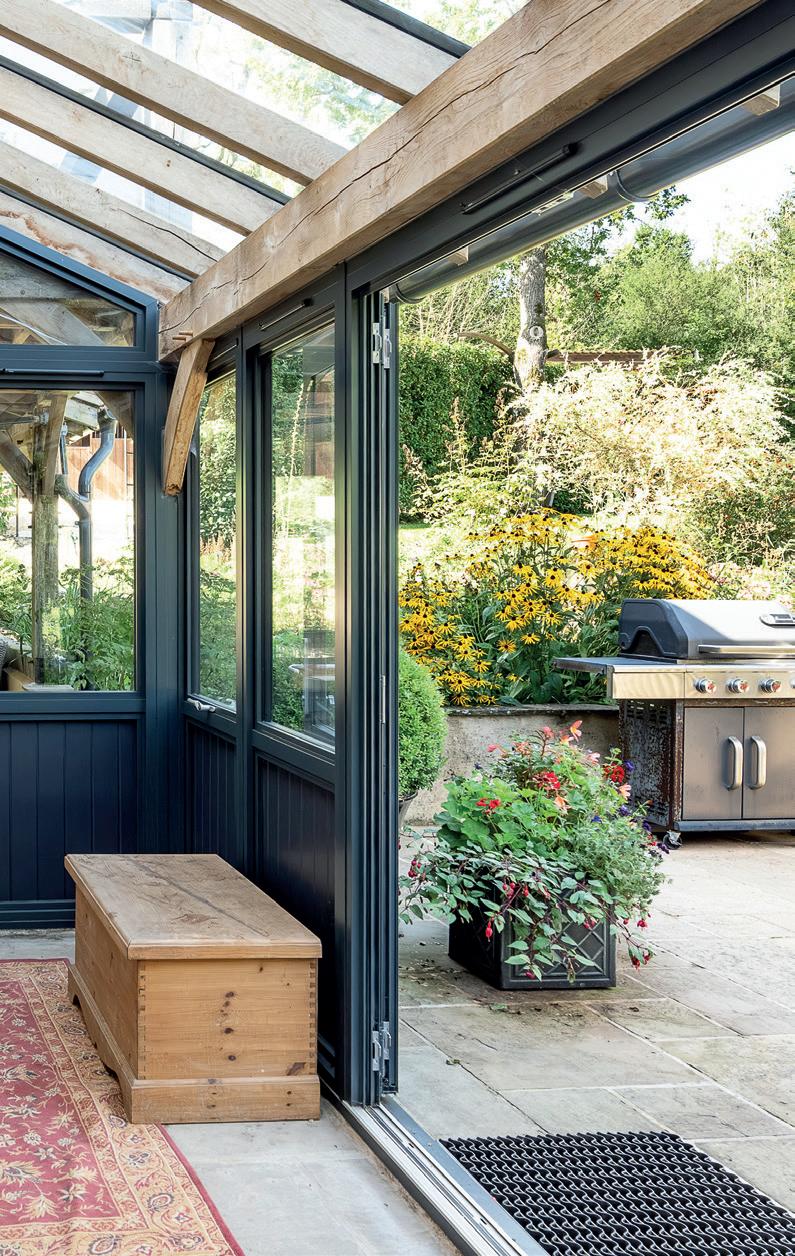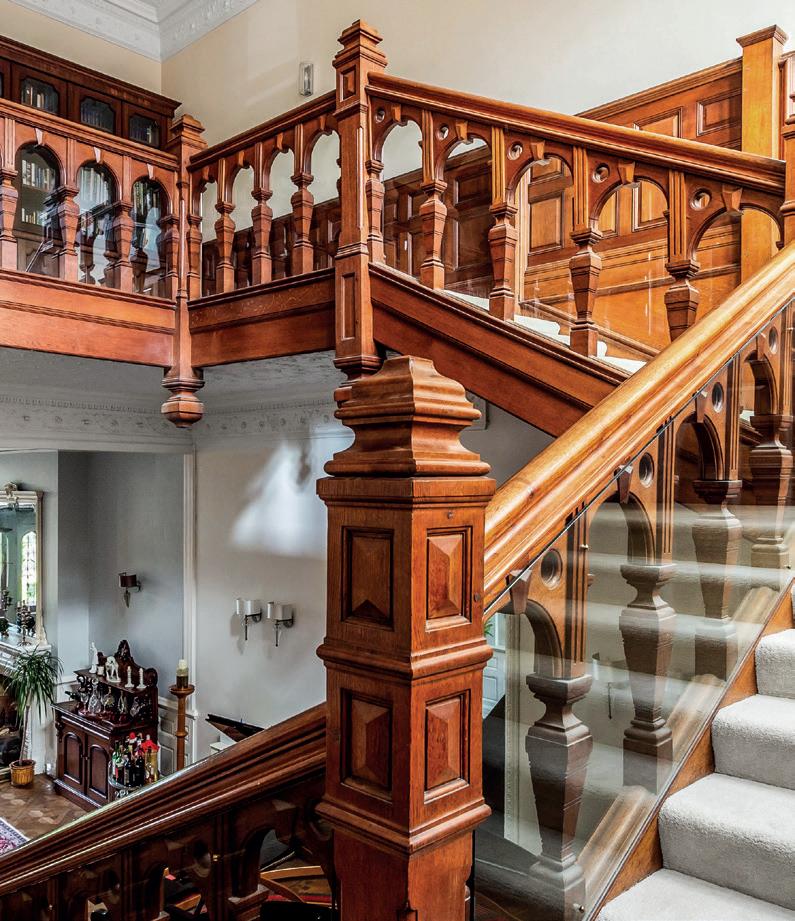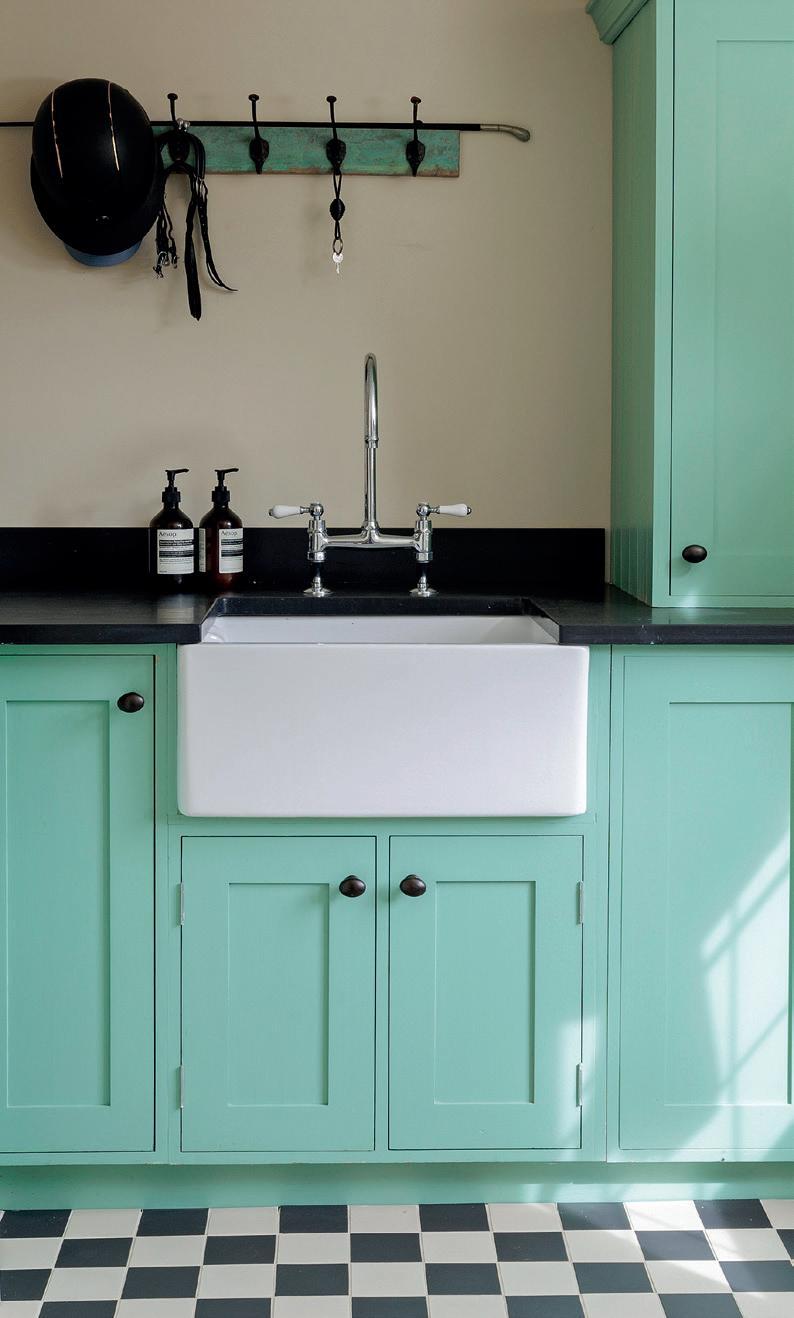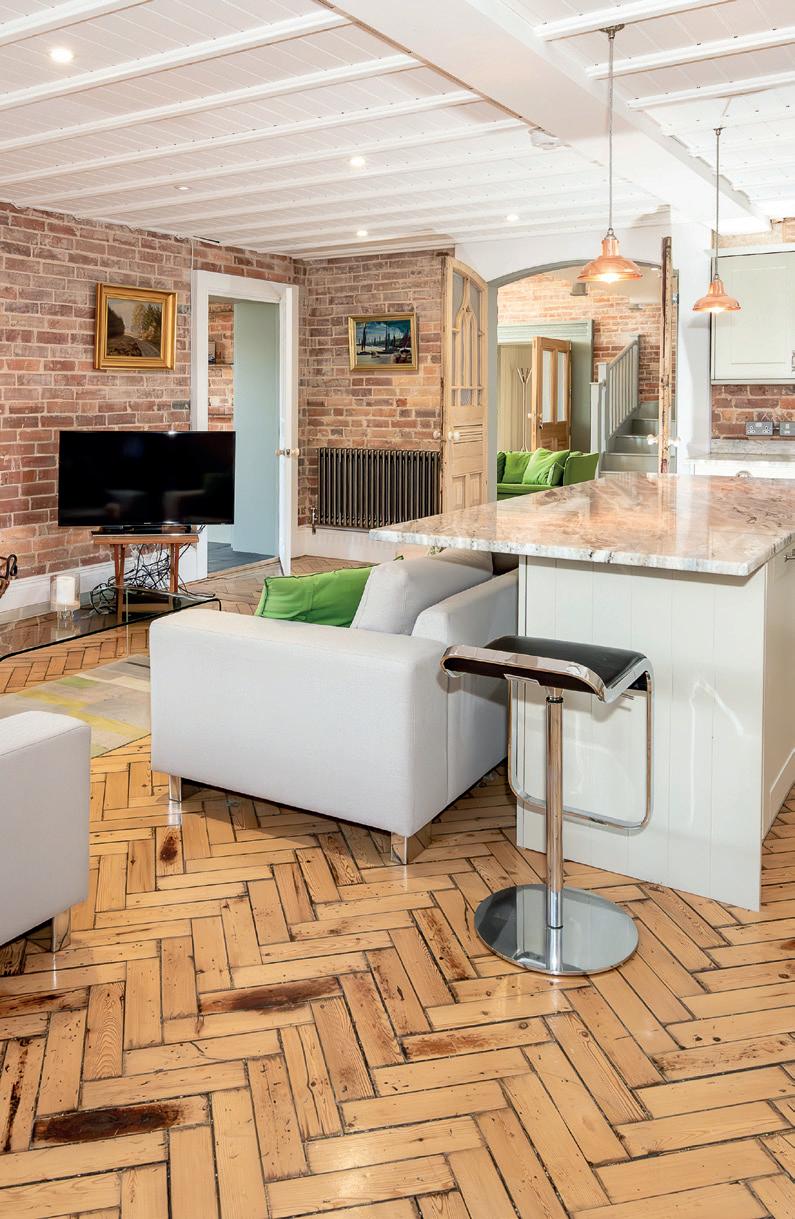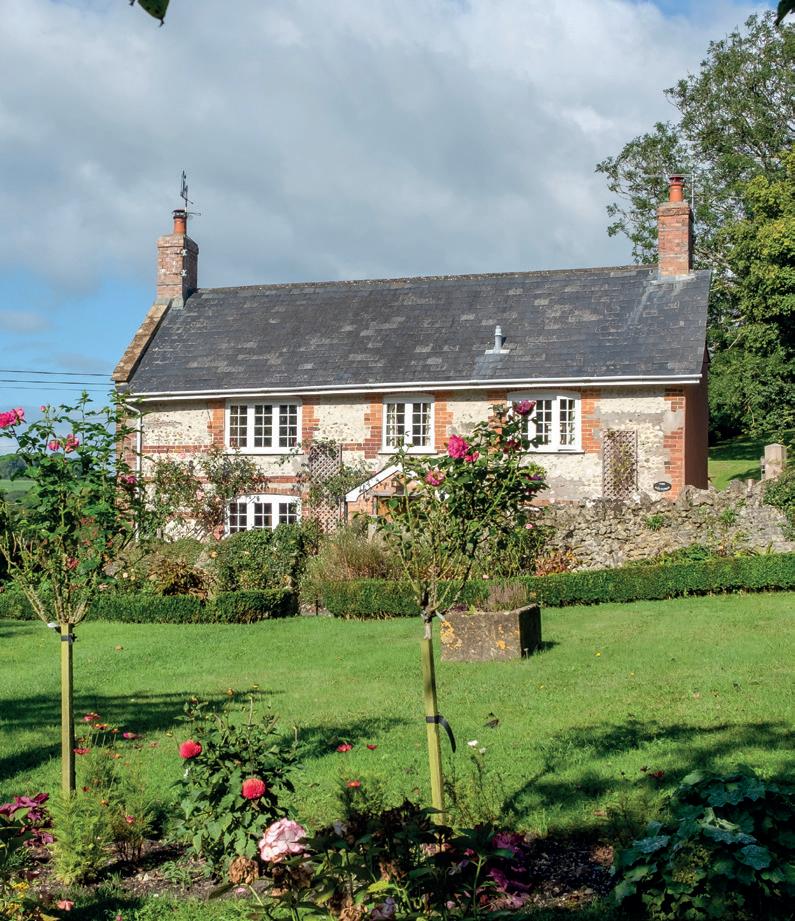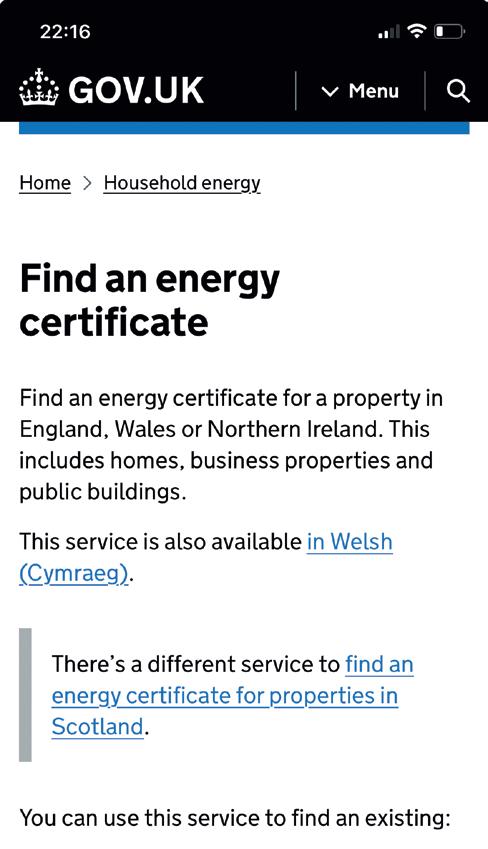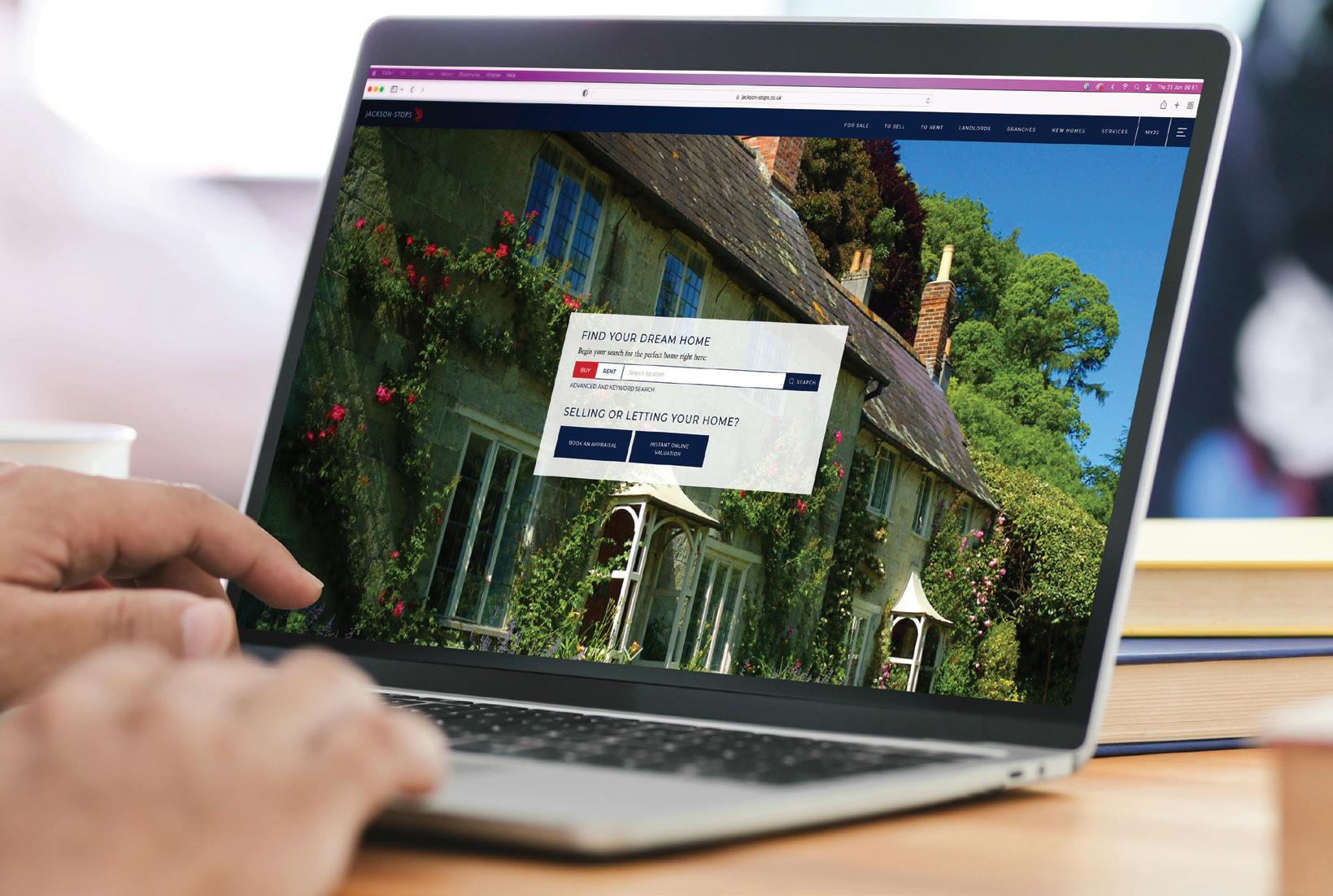LEGAL PREPARATION
Sales can be jeopardised due to unexpected legal complications or solicitor delays.
The conveyancing aspect of the sales process is now lengthier and more complicated than ever before, added to which, where a mortgage is involved, lenders are asking more questions about buyers’ finances and the property they are purchasing.
We recommend you instruct your solicitor or licenced conveyancer prior to launching the property to the market, so preliminary legal work can be undertaken to avoid any unnecessary delay once a purchaser has been identified.
LEGAL REQUIREMENTS
Jackson-Stops may ask you to complete a Property Information Questionnaire at the beginning of the marketing of your property. Whilst this is not a legal form, it is a way for us to identify any potential problems that might come up and to advise you whether to take action or not.
Under the Consumer Protection from Unfair Trading Regulations and Business Protection from Misleading Marketing Regulations 2008, estate agents are now legally required to take steps to identify issues that might affect a reasonable person’s decision-making process and to address these openly in marketing particulars. This obviously needs to be handled in a way that is not going to hinder the marketing effort and will likely require delicate handling by experienced and knowledgeable professionals.
IDENTIFYING POTENTIAL ISSUES
In an increasingly litigious environment, solicitors are looking very carefully at every transaction for discrepancies, particularly in the title register/plan, planning history, building regulations and Listed building obligations.
If you have not sold for some time you may be surprised to find that solicitors highlight issues now that they hadn’t when you purchased the property. These are often seemingly insignificant points, but they can unsettle a purchaser when portrayed in black and white by their solicitor, or may be an issue for a lender.
It is therefore important to have an agent that will actively facilitate this element of the sale and one that will take care to identify and address any potential issues at the earliest opportunity in the sales process.
TITLE REGISTER
Jackson-Stops will need to be notified of all parties with registered title and any beneficiaries with an interest of 25% or more in the property and their signatures acknowledging our fees and terms of business prior to marketing the property.
We are also required to verify their identity, which involves obtaining copies of photo ID and proof of address and carrying out a third-party identity verification check. This is a legal requirement and your co-operation is greatly appreciated.
Your personal details are held in accordance with our Privacy Policy, which can be viewed on our website: jackson-stops.co.uk/pages/privacy-policy
Rest assured, if you select Jackson-Stops, you are appointing a legally compliant and regulated estate agent.
TITLE PLAN
Where a property is sold with land, Jackson-Stops refers to the title plan and measures the area of land to be sold. Please notify us if there are multiple titles for the property so that we can locate and download them.
Jackson-Stops uses recognised Land Registry boundary area calculator programs, and takes care to ensure these are measured as accurately as possible.
If you intend to retain parcels of land or split the title, please advise us as soon as possible. Where this is a definite plan, it is worth beginning the legal process early to save delays further down the line during a sale. It is also worth plotting this on the ground, ideally with a boundary fence or hedge so that it is clear to potential purchasers. If it is only an option, it will need to be processed after a sale has been agreed and the buyers will need to be made aware of the potential delays this may cause. A Land Registry compliant land plan will need to be commissioned for the solicitors. We can provide a quote for this through one of our suppliers.
PLANNING HISTORY
Prior to marketing, please notify Jackson-Stops of any planning history relating to the property from the last 10 years. In the past we have had a number of occasions where we have not been fully informed of the planning history, which has misled purchasers. This includes applications that were refused and applications that have lapsed as well as those carried out or started but not completed.
INDEMNITY
Sometimes an indemnity policy is the only solution when issues arise and the seller is generally expected to cover the cost of this. Depending on the policy this may not necessarily be too expensive, but it can sometimes delay proceedings.
It is considered best to identify any potential issues and address them with your solicitor sooner rather than later.
Jackson-Stops will take steps to identify issues and advise you on the best course to prevent them being a problem in the sale of the property. Aforethought aids the speedy transaction of the sale.
BUILDING AND LISTED BUILDING REGULATIONS
It is essential that any building works carried out to the property as a result of planning permissions have a Building Regulation Completion Certificate and, where necessary, comply with covenants and/or Listed building regulations.
IN BRIEF
• Conveyancing is a lengthier and more complex process than ever before
• Agents are required by law to address potential issues in marketing particulars
• Issues that are flagged during conveyancing can quickly unsettle buyers
PRESENTING YOUR PROPERTY
PREPARING YOUR HOME FOR VIEWINGS
Clients often ask “How clean and tidy does my property need to be for viewings?”
This is particularly a concern for families with young children, where it is difficult to keep the home in pristine condition.
Obviously the more you can do the better; but viewers will, to a certain extent, accept that a property is being lived in.
The important thing is that viewers leave the property feeling positive and focussing on the plusses; not being distracted by mess, dirt or smell.
Most importantly, you want to show off room sizes and maximise light, and viewers should be able to open all doors and access all spaces. Furniture blocking or restricting doorways leaves people with the impression that there is not enough space.
Even if potential purchasers can look past your possessions, they may make assumptions about the overall condition of the property based on the way you present it.
Conversely, you do not want to be too clinical either, leaving the property feeling cold and unloved. It is about finding a balance that you are able to maintain, at least for viewings.
If you are unable to look at your property objectively do ask us.
If you want to go the extra mile, here are some helpful tips on how to improve the saleability of your home
FIRST IMPRESSIONS COUNT
A buyer can make their mind up about a property before even walking through the door, so don’t forget to look at the outside of your property as well as the inside. If you have an outside space, make sure the grass is mown and the borders, beds and patios are weeded. Perhaps consider re-painting window frames, fencing, gates, pressure-wash weatherboarding and patios, decking, driveways and clearing guttering.
In sunny weather, lay out garden furniture with cushions and parasols. Clear away washing lines. Also try to move any parked cars off the property to a nearby road so that the viewers can appreciate the drive space.
If you have a narrow or concealed entrance to the property try to improve this by trimming hedges and perhaps adding a traffic mirror. If you have a gated entrance off a main road, ensure this is left open so viewers do not have the stress of waiting on a busy road to get to the property. A For Sale board will help, but also ensure your signage is clearly visible so buyers can find you easily.
A FRESH COAT OF PAINT
If you have a particularly vibrant colour scheme it is worth considering replacing this with a more neutral palette, which will freshen up and lighten rooms, giving a feeling of more space. Present potential purchasers with a blank canvas.
SQUEAKY CLEAN
Polish surfaces, hoover upholstery (particularly if you have pets) and clean windows, taps and shower screens. Avoid leaving smears where this has been done though. Wipe around light switches and banisters on the stairs.
ELIMINATE STAINS
Ideally steam-clean carpets, paying particular attention to stains. Magic eraser sponges are good for cleaning walls, skirting and architraves. Treat any damp or mould stains with a sealant and re-paint. Note: do not try to cover up an existing problem – any leaks or damp issues should be addressed properly before attempting to cover the stains.
LEAD BY THE NOSE
A bad smell can distract buyers and be the most potent thing they remember about the property. The problem with smells is that you get used to them, living with them day to day. This is particularly common with pet owners. Do what you can to contain pets (or ideally remove them) and remove beds, cages and food bowls during viewings. It is often worth spritzing the place with an odour eliminator prior to viewings, but try to avoid overpowering scents. If it is a nice day it is worth opening the windows for a few hours prior to a viewing. Bathrooms and toilets should smell fresh, so perhaps invest in a toilet scent diffuser. There is the old concept of baking fresh bread or making a fresh pot of coffee just before a viewing, which if you have the time and inclination often leaves a good impression. You don’t want the smell of last night’s dinner to still be lingering in the air.
FIX IT
Fix all those small things you’ve been meaning to fix for a while such as sticking doors, loose or missing handles, broken tiles or panes of glass. These will be a negative distraction to a potential buyer but are usually inexpensive fixes that you can do yourself.
CLEAR KITCHEN SIDES
Don’t leave dirty washing in the sink or even clean washing on the drainer. Cluttered sideboards suggest there is not enough cupboard space to put things away. As you are planning on moving, it is a good time to go through your cupboards and pack up those things you don’t use on a regular basis to make space for those things you normally keep out on the side. People expect to see things like kettles, coffee, tea, sugar pots, fruit bowls, utensil pots and a few oils, but too much starts to look messy and cluttered.
GENERAL HOUSEKEEPING
Try to contain clutter to one area or room. People are more inclined to forgive toys in a playroom or child’s bedroom than they are if they are taking over the living room or kitchen. If you have storage space to put things away, use it. Hang fresh towels in bathrooms and cloakrooms, make sure beds are made and plump cushions on sofas.
MAXIMISE LIGHT
Draw all curtains and blinds and ensure all light bulbs are working. Mirrors can help bounce light if rooms are particularly dark.
COSY IN THE WINTER
Light fires (where applicable) and ensure the property is warm in the winter. A cold property is most uninviting and can sometimes result in condensation and damp.
BIG MONEY ITEMS
We do not recommend that you spend large amounts of money on updating things like kitchens, bathrooms, and windows. You may end up doing something that your buyer wouldn’t have chosen themselves and still wants to change, therefore you may not see a return on your expenditure.
If our staff feel that there is something worth doing or considering, they will advise you.
Our property management departments use a number of trusted local tradespeople, so if you want a helping hand with any odd jobs, please don’t hesitate to ask us for a recommendation.
PHOTOGAPHY
Good photographs and floor plans are key to a successful property marketing campaign.
They are what potential purchasers rely on most when deciding whether to view a property or not (besides price and location).
It is therefore important that your property is displayed in its best light and, crucially, that the main shot is strong.
The quality of photography can make a big difference and varies amongst agents.
HOW MANY PHOTOGRAPHS?
The aim is to provide enough enticing photography to get people through the door, but not so much that you give them a reason not to view. It is only with a viewing that a prospective purchaser will truly get a feel for the property and you do not want them discounting a property on the basis of a poorly composed photograph.
Research suggests that between 10 and 15 photographs is optimal, but obviously this depends on the property. If you have a flat or smaller house we do not recommend that you use multiple angles of the same room unless it actually adds something. Conversely, if you have a country estate with multiple dwellings and facilities we are likely to use more.
The key photographs are the main/lead shot, principal reception rooms, kitchen and garden. If there are striking features it is often worth photographing these individually.
Bedrooms generally don’t photograph well unless they are particularly large and bathrooms can be tricky to photograph without cutting half the room out, which makes them look small.
Studies, hallways, landings and cloakrooms generally don’t make people buy a house, so unless they are particularly attractive they are not really necessary.
DRESSING/STAGING
You may not be able to maintain your property in pristine condition throughout for every viewing, but if you have a big spring clean at the beginning this will make it easier. If the property is staged for the photographs, this will at least give people an idea of what the rooms look like at their best. If you have to sacrifice a room that we do not necessarily need a photograph of (like the study, spare bedroom or utility room) to de-clutter the main rooms temporarily, do so.
Please note, our photographers may move a few things for the photos but will not be able to spend time staging the property.
Brightly coloured items will draw the eye, particularly in a neutral room, and this can either be a negative distraction in a photograph or a positive enhancement. For example, it is worth putting away things like brightly coloured product bottles in bathrooms and bedrooms and children’s paintings or magnets on fridges, but flowers, scatter cushions and fruit bowls, can add a nice touch of colour to a room.
The most important photo in the marketing effort is the main image of the property (normally the front elevation, but discuss this with us). One photograph and a few words is all you get to stand out from the rest and entice potential purchasers to click on your property for more information. It is therefore imperative that this is the strongest it can possibly be.
TIME OF DAY/YEAR
Work out what time of day (given the time of year) is best for getting the most light on the front of the property (if this is the main shot), particularly given any high trees that might cast shadows. We may need to send the photographer back to take garden photos at the opposite end of the day and this can often be arranged.
If you are planning ahead, it is worth taking at least the external photographs (plus conservatories and view shots) during the summer and we can arrange this for you. If you launch in the spring with seasonal shots, it may be worth reviewing these if the property is still on the market later in the year and update the photographs from time to time.
COST
There are, of course, different levels of photography available. As Jackson-Stops consider photography to be most important we have built affiliations with companies and individuals who deliver quality photography and can offer various options.
Our ‘standard’ package photography is of a quality that we consider to be above average and is what we use for the majority of our properties (take a look at our website or ask for examples). ‘Professional’ photography is an option, although this usually incurs a charge to the client. The difference is usually most noticeable in the interior shots, as a professional photographer brings a lighting set-up to get a magazine quality finish (again, ask for examples). Because of the lighting set-up, the professional photographers will often spend longer at the property but end up taking less photographs (although this is dependent on the price paid).
There are also options for elevated, pole and drone photography, which may be suitable in some cases (usually where the house is on a hill or where you want to show the setting of the property in one snapshot).
We also have access to facilities to create ‘virtual tours’, although this does incur an additional charge and, as mentioned above, can lower the likelihood of people coming to view the house and therefore missing out on the emotional impact of a physical viewing.
The Energy Performance of Buildings (England & Wales) Regulations 2012 require that an Energy Performance Certificate (EPC) is commissioned when selling or letting residential property.
WHAT IS AN EPC?
An EPC is usually a 4 page document that shows a property’s current and potential energy efficiency in the form of an A to G rating; A being the most efficient and G being the poorest.
The report includes details of where the property has scored high/low and gives measures that can be taken to improve the rating.
The EPC rating and/or graph has to be included in marketing materials including the brochure, internet and any adverts.
The average rating for UK properties is D. Even new build properties often don’t reach an A rating. Anything below an E rating is considered to be low. In fact, in 2018 it was made a requirement that all rental properties have to have a minimum rating of E before they can be tenanted, with government plans to increase this to C in the future. There is currently no such requirement for selling property.
EPCs last for 10 years, although if there is an existing EPC for the property and you have either significantly extended or altered the property or replaced elements of the heating system, windows, insulation or similar we recommend that the EPC is replaced to reflect this.
WHAT IS THE PROCESS?
A qualified energy assessor will need to attend the property to carry out the EPC. It is recommended that someone who knows the property is there when the assessor visits.
The assessor will primarily be looking at the heating system (including boilers, radiators, thermostatic controls and water tanks), windows, lights and cavity wall and loft insulation.
Where there is no visible evidence, either because access was restricted or the item in question is concealed, the assessor will assume what is there based on the building regulation requirements at the time the property was built. If you have any evidence to prove otherwise they will take this into account, but they cannot rely on the vendor’s word alone.
It should be noted that the system for entering the EPC information is limited. For example, if you have replaced windows on only one side of the house, they may not necessarily be able to reflect this effectively on the report.
Older properties are often rated lower than more modern houses. Listed buildings are exempt from the requirement to have an EPC. New build properties will
either require a predicted EPC (prior to completion) or a SAP (Standard Assessment Procedure) report (once completed). Often the builder is better placed to arrange this as they will have the full build specification. We can arrange a SAP but the cost is higher than for an EPC.
Where there is a self-contained additional element to your property such as a flat or annexe, each selfcontained unit will require its own EPC.
WHY DO I NEED AN EPC?
The Regulations are designed to make people more aware of their energy efficiency and to encourage people to take measures to improve this. Green Deal finance is sometimes available to help individuals carry out energy saving measures. More information on this will be provided in your EPC or on the government website.
Potential purchasers may refer to the EPC and use this as a bargaining tool to reduce the price of the property, particularly given higher energy costs. This does not mean that we recommend you carry out measures before selling your home to improve its energy efficiency, but that this perhaps should be taken into account with regard to pricing and what level of offer to expect.
Where an EPC is required for your property, we can commission one on your behalf, although this usually involves a charge. Please refer to our market appraisal letter regarding this.
The internet is an effective advertising tool which we use extensively as part of our property marketing campaigns.
In addition to our database of buyers and tenants, we advertise on Rightmove and OnTheMarket.
Several other sites also offer property search functions that link to these sites including countrylife.co.uk and online versions of the national newspapers.
Our own website jackson-stops.co.uk has a large following attracting thousands of visitors every week. We also post regularly on many social media channels and achieve a reach of over 1 million each month.
NATIONAL ADVERTISING
Jackson-Stops regularly advertise in Country Life, The Sunday Times and Saturday Telegraph, and where possible we will put forward relevant properties to feature.
PRESS FEATURES
We have a dedicated press office based in London, who are in constant contact with journalists working for national newspapers, property magazines and websites. Journalists are always looking for stories and we will strive to get coverage for your property.
Whilst direct responses from these publications are rare, they help to raise brand awareness and drive traffic to our website. Full page adverts in Country Life can be obtained at a cost and we will discuss this with you if we feel it is worthwhile for your property.
FOR SALE BOARDS
We recommend erecting a ‘For Sale’ board at the property. Apart from helping viewers to locate the property it may attract a local buyer who might not be actively looking but whose attention is drawn to the property because of the board and this has led to successful sales.
At the end of the day the journalist decides what is featured so we cannot guarantee editorial coverage, but we have a good track record and are well placed for getting coverage where possible. Where printed, such publicity produces a high calibre response. We also have a good relationship with local editors and can often secure additional regional editorial free of charge.
If you are happy to be interviewed and have interesting stories to tell about the property please let us know so we can pitch these to journalists.

